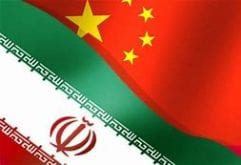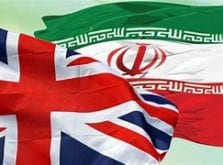Al-Monitor – While rotations and replacements of diplomats and ambassadors are usually routine administrative procedures, they sometimes can signify important policy shifts. The latter may be the case in Iran, where the country’s Foreign Ministry has in the past four months been replacing several heads of mission and representatives abroad.
Tensions between Iran and the United States have in particular made the appointment of Iranian representatives to the UN in New York a complicated process. The position is particularly important given that Iran has no active embassy in the United States. As such, powerful rival elites in Iran are often at odds over who ought to be appointed to this key post.
Late last year, veteran diplomat Gholam-Ali Khoshroo returned to Tehran to officially retire after his tenure as the Islamic Republic’s permanent representative to the United Nations in New York came to an end. His deputy Es’haq Al-e-Habib has been heading Iran’s UN Mission as a charge d’affaires since. Now, Foreign Minister Mohammad Javad Zarif has named former deputy Majid Takht-Ravanchi as Iran’s new man in New York.
When it comes Iranian UN envoys, the United States has repeatedly put a spike in the Iranian Foreign Ministry’s wheel by toughening the visa approval process.
Prior to Khoshroo’s dispatch to New York in March 2014, Iran named Hamid Aboutalebi, then deputy chief of staff of the presidential office and a close ally of Rouhani, to the post. The US government, however, denied Aboutalebi a visa on the ground that he had been involved in the 1979 US Embassy takeover in Tehran, which saw dozens of American diplomats held for 444 days and set off tensions that continue to this day. The visa rejection protracted the appointment process for 10 months. Eventually, on Jan. 28, 2015, Khoshroo was approved as ambassador to the UN — a choice the Iranian Foreign Ministry seemed to have made with greater independence than before.
Meanwhile, as part of the current reshuffle of diplomats, Bahram Ghassemi is set to start his new mission as Iran’s ambassador to France. Ghassemi has been serving as the Foreign Ministry spokesman since January 2016. Previously, the veteran diplomat served as ambassador to Spain (1993-1998) and Italy (2001-2006). By many standards, Ghassemi is viewed at home as the most successful ambassador to Rome. This, coupled with his overall 38-year background in diplomacy, could explain his appointment — while also signaling Zarif’s resolve for more active Iranian diplomacy in the French capital.
The new ambassador will have to brace for tough challenges ahead. For instance, Ghassemi will be dealing with French officials who have leveled accusations of assassination plots against the Islamic Republic. Bilateral ties were strained in October after French officials claimed that Iranian operatives had planned to bomb the annual convention of the Iranian opposition group, the Mujahideen-e-Khalq, in a suburb of Paris. Iran has blacklisted the organization, which was also on the US State Department’s list of terrorist groups until 2012. Tehran has flatly denied the French allegations.
Before his departure to Paris, Ghassemi will leave the Foreign Ministry spokesman podium to a female successor. An informed source at the Foreign Ministry has told Al-Monitor that Afsaneh Nadipour, who has served as Zarif’s senior assistant for civil rights, has been named to the post. Nadipour previously served as a diplomat at Iranian embassies in Tokyo and The Hague, and also headed the Foreign Ministry’s Department of Human Rights. Nadipour will be the Foreign Ministry’s second spokeswoman; Marzieh Afkham, who currently serves as ambassador to Malaysia, was the first.
The chain of personnel changes can be traced even further back. Iran’s ambassador to Berlin returned to Tehran late last year. Ambassador Ali Majedi’s background in economic diplomacy had prompted his appointment to the mission in Germany, which maintains trade ties with Iran. However, no successor has yet been named with the position remaining vacant.
The changes come as Europe has in recent months shown no intention of easing pressure on Iran over its missile program and regional policies, further disappointing the Islamic Republic, which has seen few concrete measures to salvage the JCPOA after the US departure from the accord. Against this backdrop, the string of new appointments could be viewed as a fresh Iranian strategy to enter into more vigorous engagement with international organizations and European governments. Amid the current tense atmosphere surrounding the future of the fragile nuclear deal, the new envoys are thus perhaps tasked with the mission to help avert a repeat of the previous diplomatic standoff between Iran and Europe in the early 2000s that led to a yearslong cut in diplomatic engagement.Found in:UNITED NATIONS, IRAN REVOLUTION, IRAN DEAL
Saeid Jafari is an Iranian journalist and Middle East analyst. He has worked for such Iranian publications as Aseman, Khordad, Mosalas and Mehrnameh. He is the editor of the international and diplomatic section of the weekly Seda in addition to working for Khabar Online. Jafari has also published English-language articles in Iran Review. On Twitter: @jafariysaeid
 Shabtabnews In this dark night, I have lost my way – Arise from a corner, oh you the star of guidance.
Shabtabnews In this dark night, I have lost my way – Arise from a corner, oh you the star of guidance.


